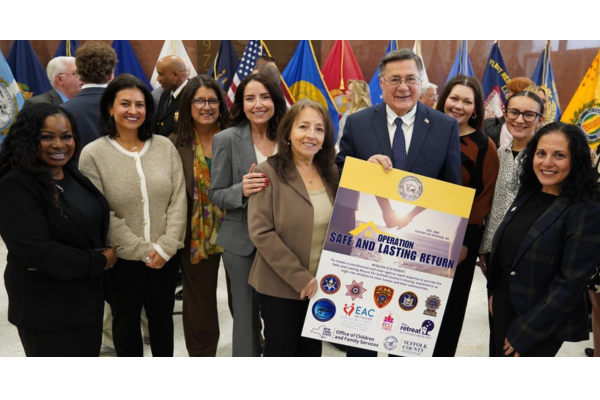Our hearts break over recent headlines, but the story of abuse is not a new one. Domestic Violence Awareness Month (DVAM) is an opportunity for each of us to learn more. Adding our voice toward ending the cycle of violence.
The Retreat joins the community in our profound sadness at the death of Suffolk County’s Gabby Petito. Sadly, Gabby’s story is a common one. The Center for Disease Control considers partner violence to be a public health epidemic. Approximately 1 in 4 women and nearly 1 in 7 men in the U.S. have experienced severe physical violence by an intimate partner at some point in their lifetime (Center for Disease Control, National Intimate Partner and Sexual Violence Survey, 2010).
Very often people don’t make the connection between cases that make the national spotlight like that of Gabby Petito, which end in extreme violence and death, and the more commonplace forms of abuse that happen every day to so many.
We want to work with the entire community to prevent situations like hers and that of countless, unnamed others from escalating or happening again.
Abuse often goes unrecognized. Abusive relationships are usually unbalanced. One person uses various tactics to control the other or treats them like a possession or object. They often involve a great deal of manipulation including gas-lighting and isolation from family and friends. Even when it is clear, an abusive partner can make it very challenging or even impossible for the person experiencing abuse to leave the relationship safely.
Part of our challenge is to help people recognize the less obvious signs of abuse, like jealousy, control, violations of privacy including digitally with passwords and location tracking, and isolation, which can be confused with “passion” or the romanticization of constant togetherness and a complete lack of boundaries.
Understand that people won’t necessarily tell you that they are experiencing abuse and will often try to hide it, so it is important to recognize signs. Often an abuser will make excuses or blame their partner. Be supportive and open up a conversation. Don’t grill the person about the details of exactly what happened which can be retraumatizing or feel judgmental. Avoid responding with shock or a tone of disbelief. Avoid asking “Why” questions–like “Why don’t you just leave?”– which can imply that the person is at fault and can communicate a lack of understanding about the depth of the challenge they are experiencing. Do say:
- “Do you feel safe in your relationship?”
- “Is there something I can do to help you?”
- “I’m here if you want to talk about it.”
- “Thank you for telling me.”
- “No one deserves to be treated like this.”
- “There is support available for you.”
- “Is it safe for you to go home?”
At The Retreat we are also working to help people in our community support those in abusive relationship situations, including first responders like health care professionals and law enforcement. We recommend helping empower those who are experiencing abuse–starting by opening the door to a conversation, providing confidentiality so that they can safely share, and avoiding inadvertently blaming victims for the abuse they are experiencing.
The Retreat offers support in the form of free counseling, legal services, and shelter to those experiencing abuse. The Retreat’s 24-Hour hotline is 631-329-2200 or find information and a confidential Chat feature on The Retreat’s website www.allagainstabuse.org.
We also offer age-appropriate prevention education programming in schools as well as with community groups including health care professionals and law enforcement.
The Retreat’s Teen Leadership Council helped develop our new outreach materials for Domestic Violence Awareness Month: 6 Things You Should Know about Relationships, and What is Love? #ThatsLove and #ThatsNotLove to help build awareness about healthy and unhealthy relationships and what to do if you or someone you know finds themselves in an unhealthy relationship situation.
